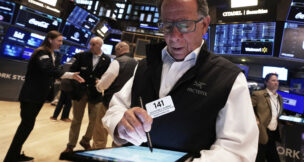More to come?
The $37.1 million sale of Health Diagnostic Laboratory Inc. still leaves many questions
More to come?
The $37.1 million sale of Health Diagnostic Laboratory Inc. still leaves many questions
The end for Health Diagnostic Laboratory Inc. — at least as an independent company — came in a bankruptcy courtroom populated primarily by lawyers. In mid-September, U.S. Bankruptcy Judge Kevin R. Huennekens approved the sale of one of Richmond’s former business juggernauts to a little-known Texas startup for $37.1 million.
The sale to True Health Diagnostics LLC, based in Frisco, Texas, was hailed as a way to preserve jobs and HDL’s high-tech blood testing model. Yet, Richard S. Kanowitz, a New York-based lawyer representing the committee of unsecured debtors in HDL’s bankruptcy, says the sales price “was not a lot of money, given the money that [HDL] was making.”
As the bankruptcy process continues, Kanowitz says his committee is focusing on HDL higher-ups in an investigation into what brought about HDL’s decline. “All of the shareholders and current/former directors and officers are targets,” he says.
That includes Tonya S. Mallory, the company’s co-founder and former CEO, and shareholders Floyd Calhoun Dent III and Robert Bradford Johnson, who also are the owners of Blue Wave Health Consultants Inc., HDL’s former outside sales contractor. They already have been sued by the U.S. Department of Justice (DOJ) for their alleged role in what it says was an $80 million kickback scheme that caused the government to pay hundreds of millions of dollars in false claims for tests.
HDL’s sale was the culmination of a year that saw the unraveling of what once was one of Richmond’s fastest-growing, private companies. Opened in 2008, HDL had net revenue of $375 million in 2013 and was selling its blood tests to doctors in 47 states.
Public awareness of HDL’s troubles began with a September 2014 report in the Wall Street Journal. It examined the company’s practice of paying a $20 process and handling fee to doctors referring patients to HDL for blood testing.
The DOJ investigated HDL and another blood testing laboratory, alleging that the payments violated federal anti-kickback laws. HDL countered that the practice was industrywide but stopped the payments after a fraud alert was issued by the U.S. Department of Health and Human Services.
While admitting no wrongdoing, the company agreed to a $49.5 million settlement with the DOJ in April. The settlement helped plunge the company into Chapter 11 bankruptcy.
In the meantime, Mallory resigned, the company went through several rounds of layoffs, and was sued by two insurance companies and Blue Wave. When HDL filed for bankruptcy protection in June, court filings showed it had more than 200 creditors, while listing assets and liabilities both in the range of $100 to $500 million.
As part of its sale agreement, HDL said it would not pursue legal action against representatives of True Health. This release was important, Kanowitz says, because HDL had filed pleadings seeking to depose True Health representatives. HDL wanted to know if True Health personnel were interfering with HDL’s business relationships.
The release, though, will not affect the unsecured debtors’ investigation. “It does not impact one way or the other the investigation or any potential lawsuits against the wrongdoers who brought about HDL’s demise,” says Kanowitz. He adds that the committee is looking into “transfers made between 2010 to 2015, before the company went into bankruptcy, and what we think could be a breach of fudiciary duty.”
The committee is not looking at rank and file sales personnel who worked for HDL, via Blue Wave, some of whom may now work for True Health. “It wouldn’t surprise me if some of the Blue Wave salespeople are going to work there. It’s what competitors do,” Kanowitz says.
There’s been speculation on CaféPharma, an online message board for the pharmaceutical sales industry, that some of the higher-ups involved with Blue Wave are now working for True Health.
Going forward, much remains uncertain. True Health CEO Chris Gottenthaler says it wants to be a good Richmond corporate citizen.
“There are diagnostic tests that are unique to HDL’s Richmond laboratory and to our existing laboratory in Frisco, Texas, and True Health will continue to operate both facilities,” he says. “In Richmond, we will operate within substantial portions of the existing HDL building, and we will be asking hundreds of current HDL employees to join True Health.”
Doug Sbertoli, HDL’s general counsel and spokesman, says the Texas company now operates out of a 10,000-square-foot space.
HDL built a 283,000-square-foot office and laboratory in the Virginia BioTechnology Research Park in downtown Richmond. It now leases more than 50,000 square feet of that space to another tenant.
Lawyers said during the court hearing that proceeds from the sale should be enough to pay off secured debtors. Yet there are many unsecured debtors, including the DOJ. Its representatives were successful in protecting stipulations that will make HDL pay $4.5 million to the U.S. after the sale.
That amount represents recent Medicare payments made to HDL that could have been held up because of the company’s debt to the DOJ.
P




















